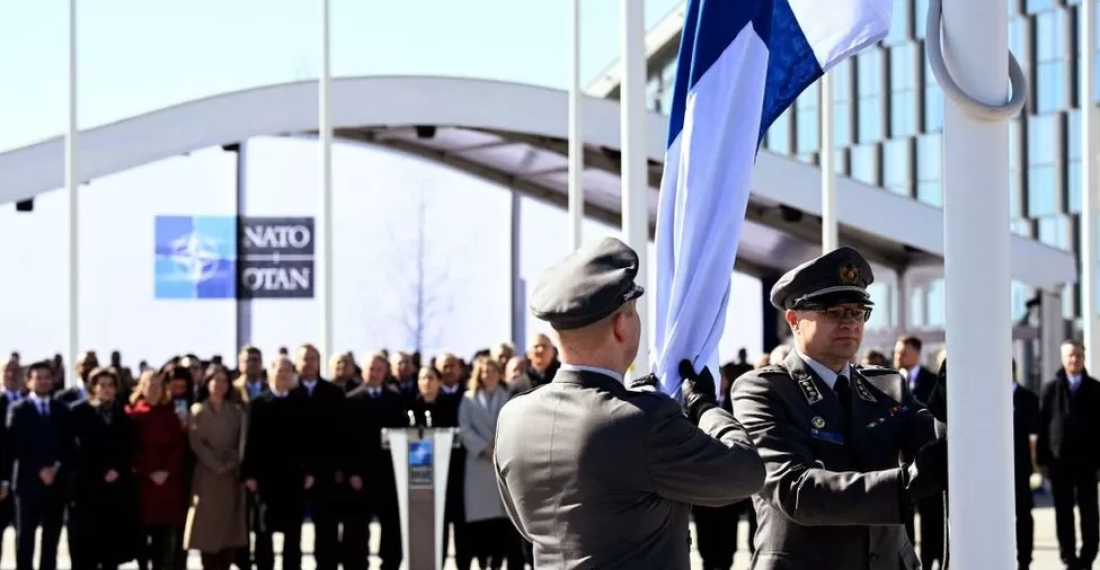Finland has officially joined the NATO military alliance after handing over the instrument of accession in a ceremony at the NATO headquarters in Brussels on Tuesday (4 April).
Finland has therefore become the 31st member of the bloc, and in doing so has doubled the length of NATO's border with Russia. Previously, the only NATO member states who shared a border with Russia were Norway, Estonia, Latvia, Lithuania and Poland.
"It’s a great day for Finland and an important day for Nato,” said Finland’s president, Sauli Niinistö. "Russia tried to create a sphere around them and … we’re not a sphere. I’m sure Finns themselves feel more secure that we are living in a more stable world."
The NATO Secretary General Jens Stoltenberg said, "This will make Finland safer and NATO stronger...President Putin had a declared goal of the invasion of Ukraine to get less Nato along its borders and no more membership in Europe, he's getting exactly the opposite."
Finland and their nordic neighbour Sweden both abandoned decades of military non-alignment to apply for NATO after Russia launched its full-scale invasion of Ukraine in February 2022.
With an active force of about 30,000, and able to call on 250,000 reserves, Finland has a well-equipped and trained armed forces. Speaking to the BBC, the US ambassagor to NATO Julianne Smith said, "Finland's a terrific ally, very capable, shares our values and we expect a seamless transition into its proper seat at the table."
Sweden's membership is stuck, however, with Hungary and Turkey raising objections with Stockholm.
The Russian reaction
Russia's reaction to the prospect and reality of Finland joining NATO has been inconsistent.
In June 2022, Vladimir Putin said, "there is nothing to be afraid of about a possible membership of Finland or Sweden in NATO. If they want to, please."
However, upon Finland's accession yesterday, the response was rather different. Kremlin spokesman Dmitri Peskov said that Finnish membership is a "violation of our security and our national interests".
Peskov said that Russia was being forced to take "counter-measures to ensure its own security". However, in July 2022 the Finnish public broadcaster Yle released satellite images showing that the Russian Alakurtti military base near the Finnish border had been nearly emptied. It is suspected that much of the equipment was sent to Ukraine.






